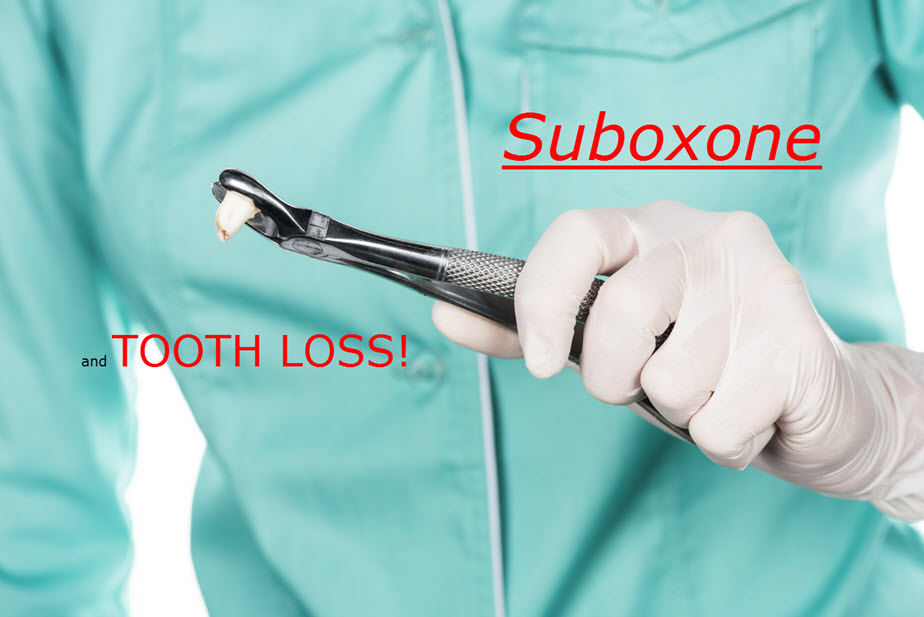Tooth Loss from Suboxone Strips
Share this:
The opioid epidemic has put a lot of pressure on the public health system. There has been an increase in deaths due to overdose amongst individuals with opioid dependence. Medications such as Suboxone strips are emerging as an effective way to treat opioid dependency. While its benefits in addiction recovery are well documented, there has been growing concern about its unexpected side effect, tooth loss. Below, we delve into the impact Suboxone has on teeth and the lawsuit its manufacturers and distributors are currently facing as a result.
Click this link to File Your Claim Now! You’ll need to answer 3 simple questions to start the claim.
What is Suboxone?
Suboxone is a medication that is used in the treatment of opioid dependency. Its two main active ingredients are naloxone and buprenorphine. Buprenorphine is an opioid agonist. It activates opioid receptors in the brain by binding to them. However, its impact is not as intense as stronger opioids. It is therefore effective at reducing cravings as well as withdrawal symptoms. Nolaxone is an opioid antagonist. This means that it inhibits opioids. It therefore helps to prevent relapses and overdose.
Suboxone strips are FDA approved for use in the battle against opioid dependency. These strips are placed under the tongue (sublingual administration) or in the cheek. The active ingredients are absorbed directly into the bloodstream.
Impact of Suboxone on Teeth
Suboxone, like many other pharmaceuticals, has various side effects including stomach cramps, muscle cramps and nausea. However, some of the most significant effects of the medication are associated with tooth loss and decay. Some of the dental issues reported by Suboxone users include:
- Dry mouth (xerostomia)
One of the most significant contributors to tooth loss amongst Suboxone users is dry mouth. Suboxone users have reported a reduction in saliva production. Saliva is essential for oral health. It helps to wash away food particles as well as to neutralize acids produced by bacteria in the mouth. With reduced production of saliva, these acids can erode tooth enamel and lead to cavities and tooth decay.
- Severe tooth decay
Many suboxone users experience severe tooth decay. This results in cavities and other damage to teeth. Tooth ache and tooth loss resulting from cavities can result in emotional distress. Many of the lawsuits that have been filed against the manufacturers of susboxone are a result of severe tooth decay.
- Erosion of tooth enamel
Subozone has been linked to erosion of tooth enamel. There two ways that these strips can cause tooth erosion. The first is by reducing the production of saliva and allowing acids produced by bacteria to accumulate in the mouth. The second is a result of the acidity of the strips themselves. These strips are placed in the mouth for extended periods. The prolonged exposure can have a direct impact on the teeth by causing enamel erosion.
- Gum issues
Subozone users have also complained of gum issues such as inflammation. Gum problems can have a big impact on oral health. You can develop periodontal disease which can also impact your overall health.
- Infections
Another common dental problem experienced by suboxone users is oral infections. Oral infections can be painful and expensive to treat. The infections can also spread to other parts of the body and cause health problems.
How to Minimize the Negative Impact of Suboxone on Teeth
There are some scientific studies that have linked the use of Suboxone to tooth loss and decay. These studies show that Suboxone users are at higher risk of developing dental issues than people on other types of medications. There are several precautions you can take to reduce the risk of suffering these dental issues. These include:
- Using the right dosage. Do not exceed the dosage prescribed by your healthcare provider.
- Take a swig of water and swish it in your mouth prior to the placing the strip. This will increase moisture in your mouth. This will not only help to increase absorption of the active ingredients but also reduce the impact of the acidity of the strip. Rinse your mouth 30 minutes after administering the strip to get rid of any residual acidity.
- Maintain a good oral hygiene routine including brushing your teeth at least twice a day, flossing once a day and visiting your dentist for a checkup at least twice a year.
Suboxone Lawsuits
It is believed that the manufacturers of suboxone strips, Indivior, had knowledge of the acidic naturel of their strips and the impact that the strips could have on tooth enamel. Several lawsuits have been filed against Indivior in relation to the adverse events related to the use of suboxone strips. These include tooth decay, gum infections, cracked teeth and broken teeth. The failure of the manufacturer to warn users and healthcare professionals of the possible adverse effects have led to lawsuits being filed against the company.
If you were prescribed suboxone strips and have suffered a dental injury or severe oral health problems related to the use of these strips, don’t hesitate to contact High & Younes at 402-933-3345. Schedule free consultation and learn about your options available to you.

Tooth Loss from Suboxone Strips
A great way to reach us!

